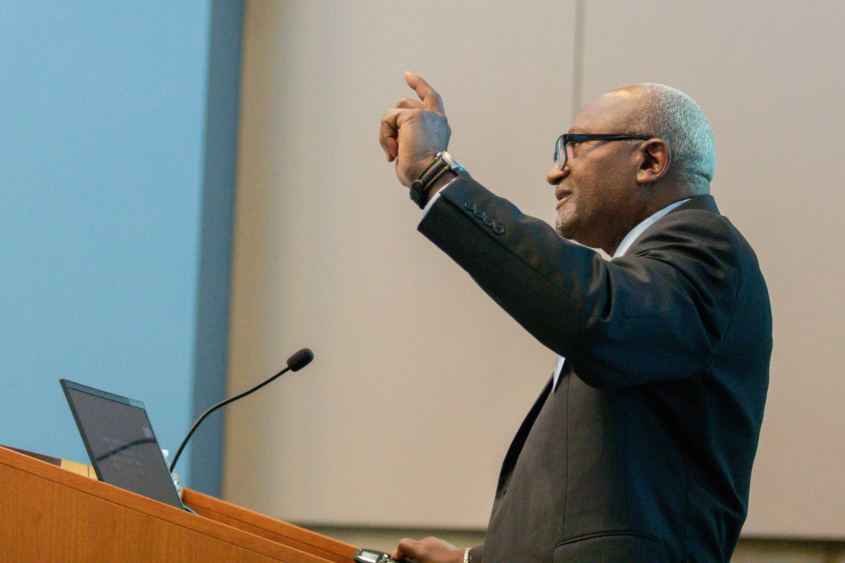
Connecting the Dots on Climate Change Environmental scholar Robert Bullard charts a path to a more equitable future — if America can avoid repeating past mistakes
By Les Dunseith
Robert Bullard has been called professor, dean, author, policy influencer, important thinker, movement starter and the father of environmental justice. But that’s not how he chose to describe himself during a May 12 talk at UCLA.
“I do what’s scientifically called kick-ass sociology,” Bullard said playfully in his opening remarks to a roomful of students, faculty, staff and other interested parties, plus an online audience. “And what I’ve tried to do is to make it simple, make it plain, make it real and connect the dots.”
The renowned scholar from Texas Southern University has written 17 books. “But it’s really just one book — don’t tell anybody,” Bullard said slyly. “The central glue that connects all of those volumes? Fairness, justice and equity.”
He often blended humor into his discussion of serious topics such as America’s history of racial discrimination and the growing global climate crisis. Titled “The Quest for Environmental and Climate Justice,” Bullard spoke and took audience questions for more than an hour in the Bruin Viewpoint Room of Ackerman Union as part of the UCLA Luskin Lecture series. It was presented in conjunction with the Harvey S. Perloff Environmental Thinkers Series and UCLA Urban Planning’s 50th anniversary celebration.
In his introductory remarks, Dean Gary Segura of the UCLA Luskin School of Public Affairs said, “At the Luskin School, we try to have conversations about things that actually matter — climate degradation, environmental degradation and its impact on working class and poor people of color — and for which there is a desperate need for solutions.”
Bullard is known for his courage and “his insights into how questions of race figure into environmental justice,” said the evening’s emcee, Susanna Hecht, a geographer and professor of urban planning who also serves as director of the Brazilian Studies Center at UCLA.
“He is a person who has a broad perspective and broad horizons,” Hecht said. “His work has expanded to embrace a range of topics that evolved at the center of environmental, civil rights, human rights and the question of race and vulnerability under climate change, as well as patterns of pollution in both urban and industrial landscapes.”
So, what is environmental justice?
Bullard sees it as an essential notion that all people and communities are entitled to equal protection to ensure they have adequate housing, quality health care, and access to the energy and transportation they need in their daily lives. Civil rights and human rights.
The reality rarely matches the ideal, however. He cited as an example a study that showed government relief after a natural disaster going primarily to wealthier, predominantly white communities rather than to poorer, predominantly Black areas.
“We know that all communities are not created equal,” Bullard said. “There are some that are more equal than others.”
Without action, disparities are likely to grow as industrial pollution further degrades our planet, he said.
“Climate change will make it worse on the populations that are already suffering,” Bullard said. “Those who have contributed the least to the problem will suffer the most. That’s the inequity that we’re talking about. You can’t have your basic human rights if even the right to breathe has been taken away from you.”
Despite decades of experience documenting human nature at its worst, Bullard has not given in to despair.
“I’m hopeful and optimistic that we can get this right. I’ve been working on this for 40 years, but we don’t have another 40 years. We only have, maybe, a dozen to get this right,” Bullard said.
He cited California as a leader in environmental equity and climate change responses and noted the state’s history of finding out-of-the-box solutions in technology and government, as well as its highly regarded universities.
“Let California be California. That’s my answer. Push the envelope as far as you can,” Bullard said.
“And so, I’m looking to young people. I’m looking at your faces,” he told his audience of mostly young scholars. “You are the majority now. I’m a boomer and proud of it. But millennials, zoomers, Gen X, Y and Z — you outnumber my generation. Take the power.”
—
View photos from the event on Flickr.
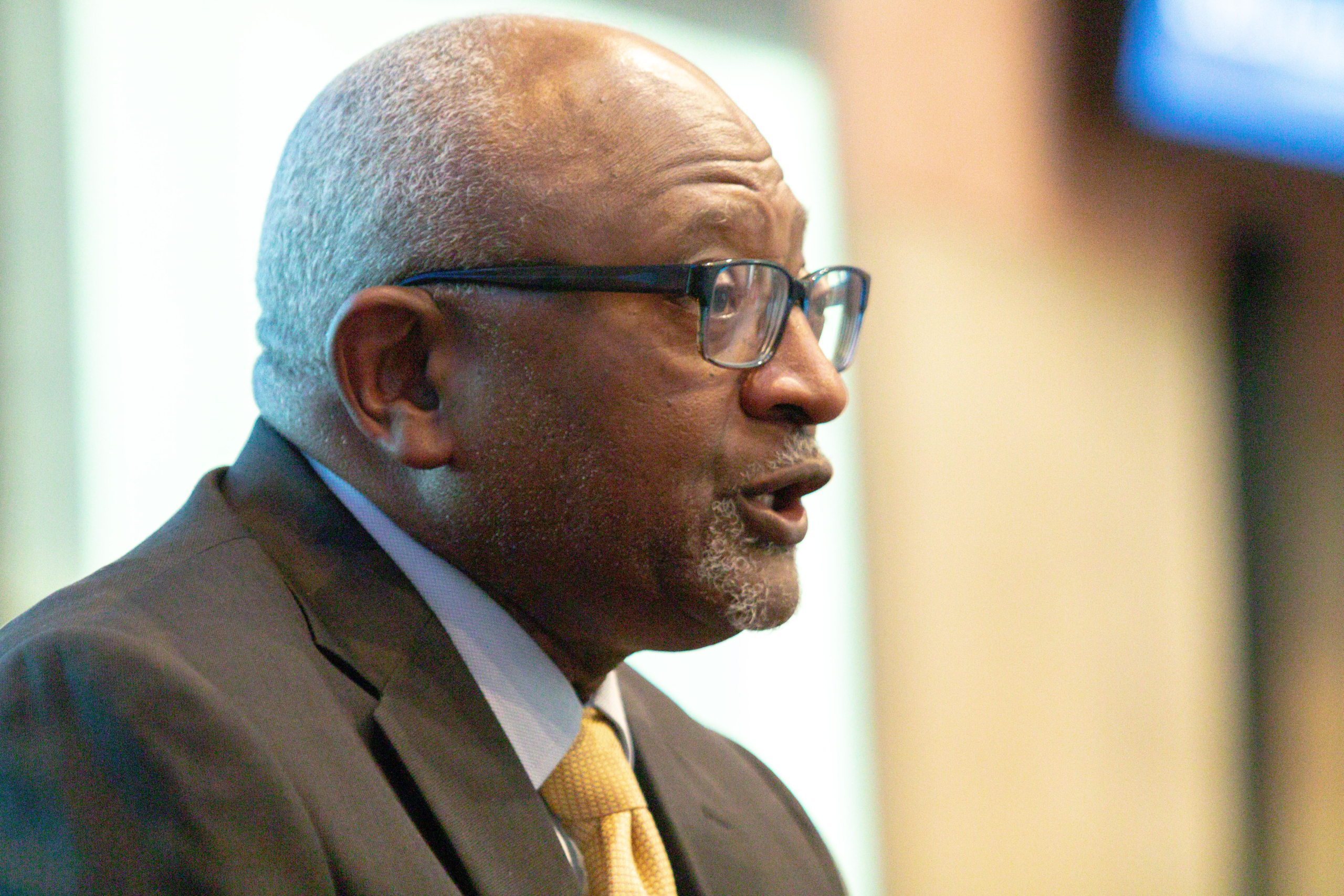
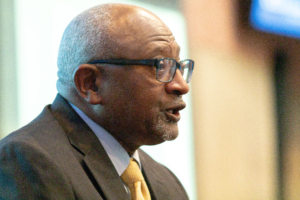
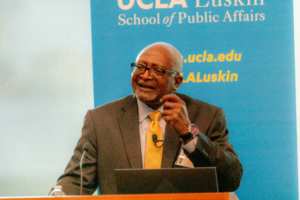
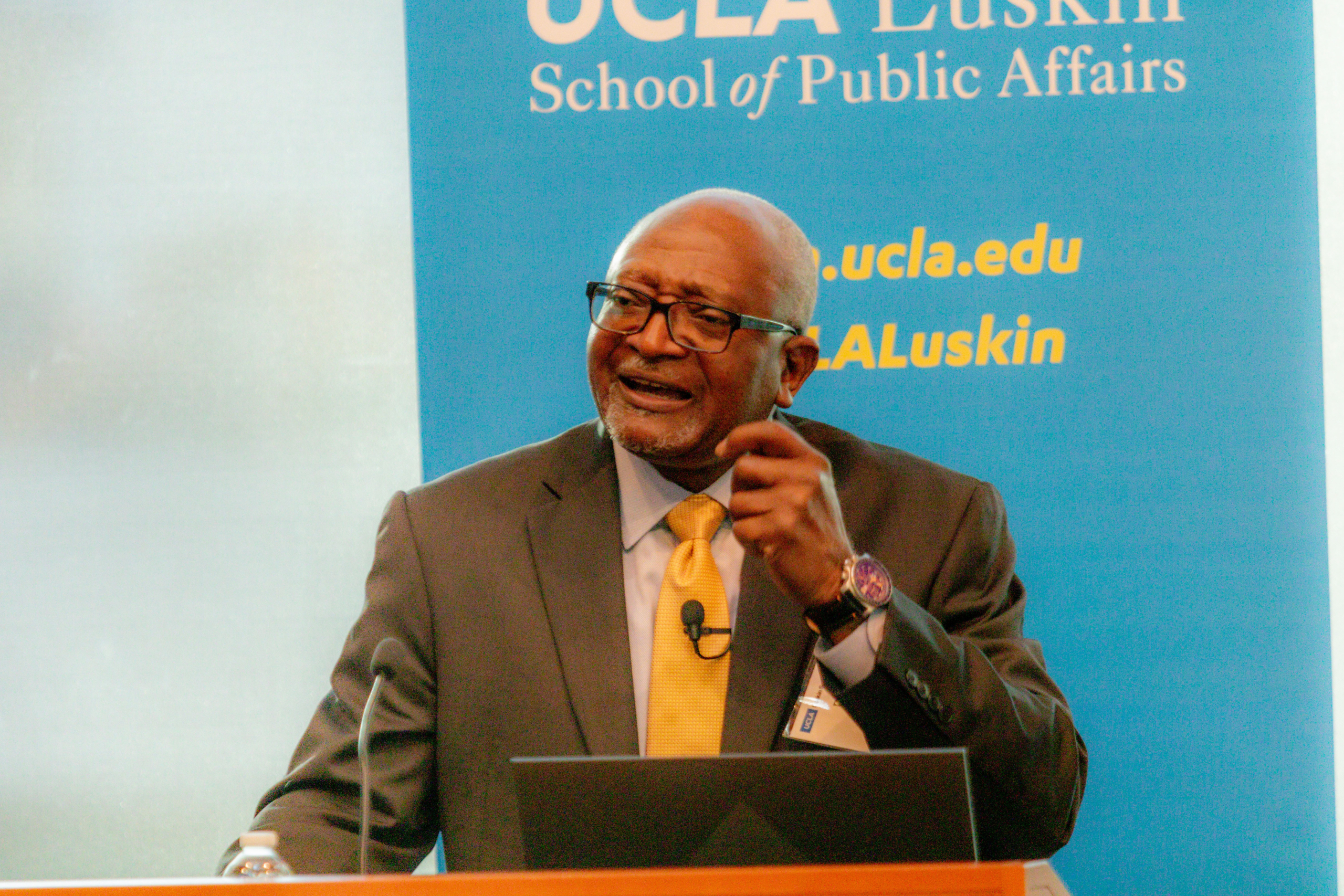
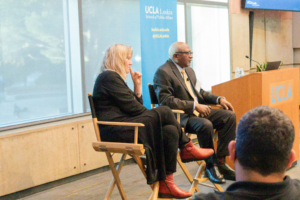
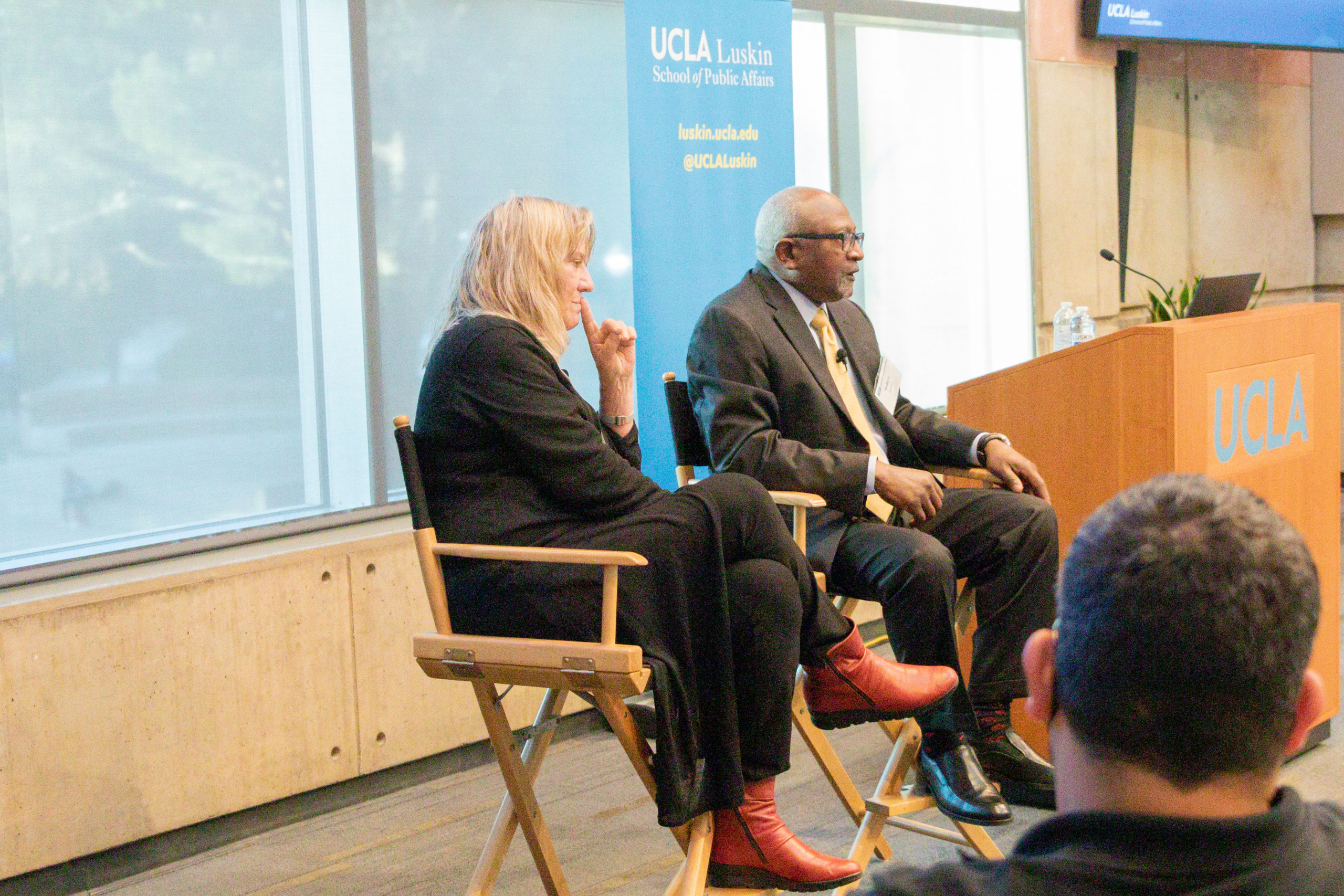
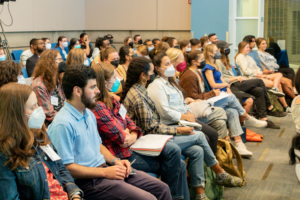
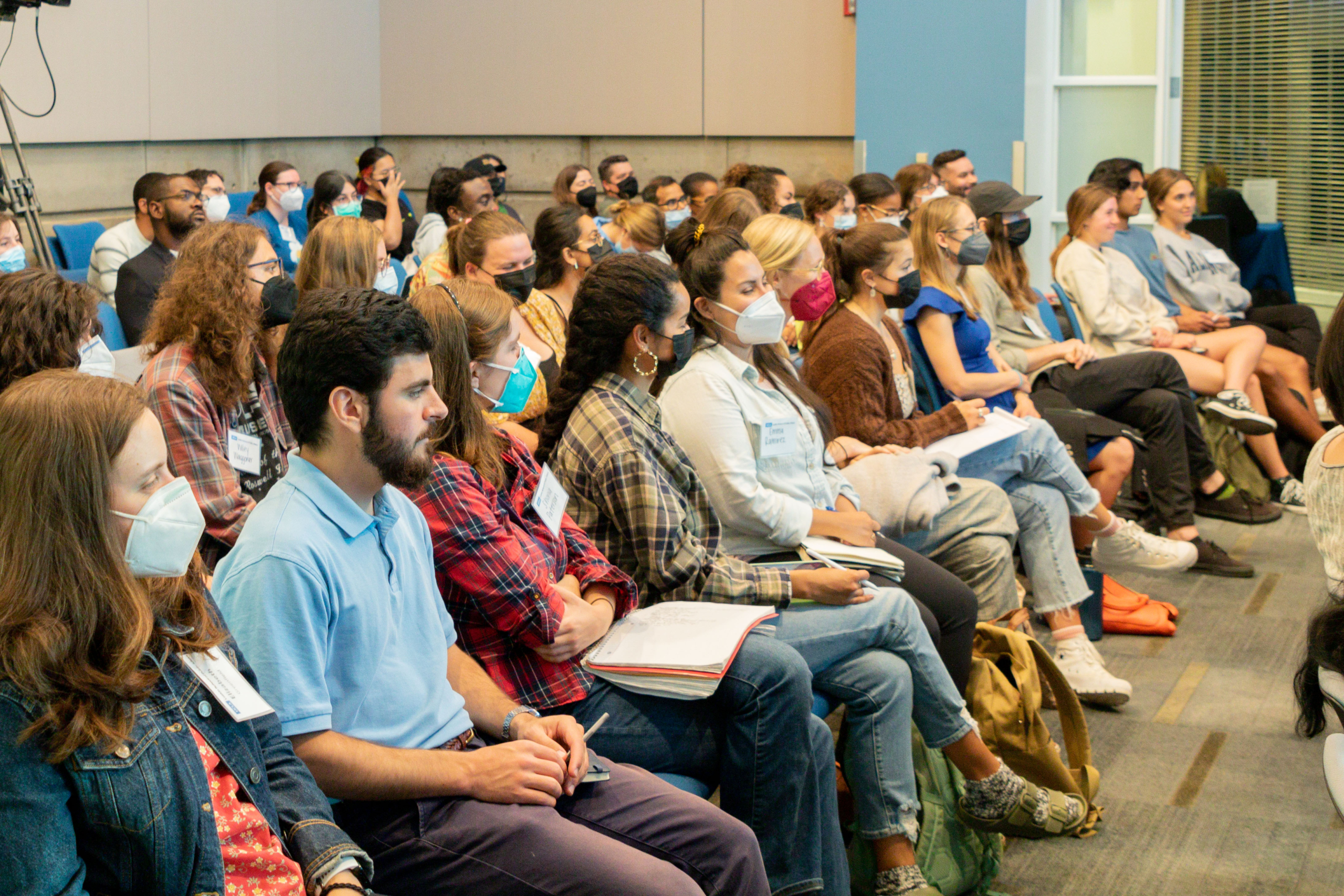
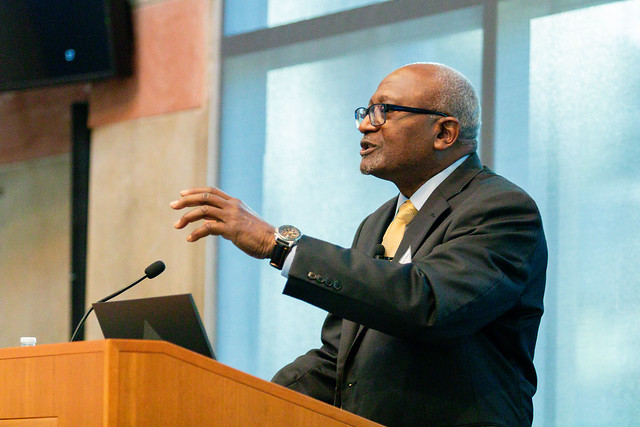
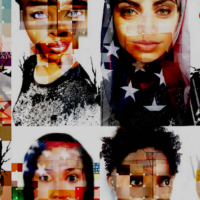
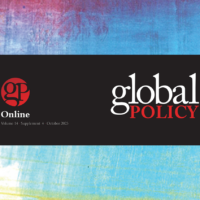
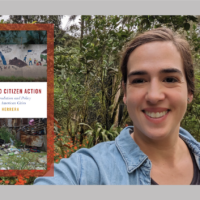
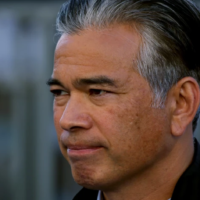
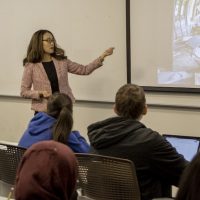
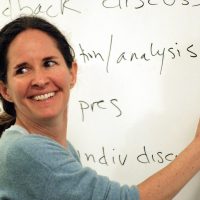



Leave a Reply
Want to join the discussion?Feel free to contribute!